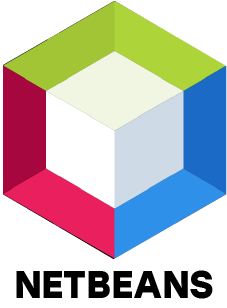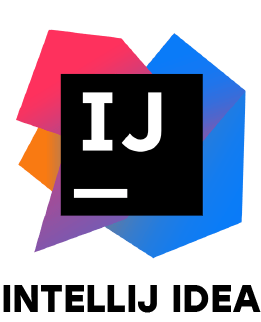Additional Info
Why should you learn Java Programming?
Java is an absolute must for students and working professionals who want to become outstanding software engineers, especially if they work in the software development domain. I'll go through some of the major benefits of learning Java programming:
Object Oriented:- All is an object in Java. Since it is built on the Object paradigm, Java may be readily expanded.
Independent platform:- Unlike many others, C and C++, it's not compiled into a platform-specific machine but into platform-independent bytecode when built. This byte code is transmitted throughout the web and processed on any platform that is running by the virtual machine (JVM).
Safe:- Safe With Java's safe function, it allows virus-free systems to be developed without manipulation. Techniques of authentication.
Easy to learn:- Java is intended. It would be easy to learn if you grasp the basic notion of OOP Java.
Java application's most popular areas:
In a variety of rapidly expanding sectors, Java is used for:
- Reactive scheduling.
- Big data work.
- IoT.
- Developing mobile apps.
- The digital industry transformation (e.g., healthcare AIs or large-scale financing data) will be significantly affected by all these developments so that Java developers would wish to work on high-demand projects.
- When we are talking about Java industries, they include banking, retail, gaming, and marketing. This might be a recommendation for Java developers to find a job in the future. As for employers, a staff of Java developers is likely to be put into place.
Future scope of Java:
Our study findings show that Java is the language of choice for increasing organisations, to help update their applications. It is not surprising that Java developer demand is forecast to rise by up to 19 percent between now and future. The median salary for US-based Java Developers is over 70,000 and goes up depending on career level, experience, and location. Besides choosing Java development companies who are able to assist application modernization across sectors, companies have to grasp the difference between Java and other mainframe programmes. It operates on Java virtual machines (JVMs), where its own resources are managed and whenever possible. When JVMs eat Java's history is important, leading the industry to question its durability with almost 20 years as one of the cornerstones in programming languages. The newest version, Java 9, will be released in autumn. For almost a decade, Java has been the world's most popular language. It's a wonderful location to be if you're starting. You will not hurt for employment if you are an expert. Diversifying your language programming abilities might lead to greater profitability as you can programme in several languages.
Industry path in Java:
Java is the first Devskiller language tested, with SQL and JavaScript on 2nd and 3rd position. Furthermore, Java stays next to Python and Java script in the top 5 most desired programming languages for 2020. The reason for such popularity is that Java is continually developing and providing new capabilities to developers to make the development process easier and better. If we talk about the kind of firms using Java the most, big organisations with big teams are there. Although Java is utilised in less than Javascript organisations, the scale of the firms that use Java is business-grade. This may be justified by the.
Advantages of Java:
Focused on objects:- Java utilises a paradigm focused towards objects that renders them more convenient. Everything in Java is a data and behavior-controlled object. Java employs the idea of objects such as subjects, classes, heritages, capsulation, polymorphism and abstraction.
Sturdy:- Java is a robust programming language because it employs good memory administration. We may also use the Java code to handle exceptions. We may also use type checks to safeguard our code. It does not give explicit pointers that prevent the programmer from directly accessing the memory from the code.
Independent platform:- Code Java can run immediately on many systems, that is, we do not always need to compile it. It is correct once, if it is executed everywhere (WORA), which at the time of compilation is translated into byte code. The byte code may run on various systems. The platform-independent code.
Threaded multiplicity:- Java utilises a multi-threaded environment to convert a larger job into several threads and work independently. Multi-threading offers the major advantage of not having to remember all running threads.
Security:- Java is a secured programming language, as Explicit Pointers are not used. In the virtual sandbox, Java apps execute as well. JRE also has a class loader that is used to dynamically load the class into JVM. It isolates the local file system class packages from those imported via the network.
Easy to learn:- Java is a basic and easy to grasp programming language. Its C++ syntax employs an automated waste collection; hence the unreferenced objects do not have to be removed from the memory. Java also lost features such as explicit indicators, overloads, etc., which make reading and writing easier.
9 Java Developers Essential Tools:
There is no lack of tools for any Java application development project for Java developers. The availability of a wide variety of tools, frameworks, profile and integrated development environments is not a coincidence, given the use of Java programming language in many types of applications that range from moving to web development projects. But not every tool is ideal for Java development projects of all kinds. The Java Programmer must have a thorough study before choosing a tool. We covered wide-ranging technologies here, which make life simpler for Java developers. Whether you're looking for Java easy, strong or tough and complicated, these Java development tools are suitable for everyone.
Maven Apache:- If you are a senior Java developer, you may have utilised a range of Java app development projects with this build automation tool. Apache Maven is a project management and understanding software application that controls building, reporting and documentation from a key information source. Maven enables Java developers to test units and deploy items or supplies to live environments. It is also useful in the management of dependencies, such as JAR files from third parties utilised in the Java application development project. It is also used to update the central JAR repository and several additional dependencies.Java programmers may simply integrate the source with their projects.
GIT:- As crucial as GIT and GitHub for Java developers, it's not as important. Even if you are a Java programming start-up, it is vital that you learn about Git and GitHub if you are recruited from any reputable Java Application Development Company. Git is currently a standard for source code repository due to its widespread use. In the first place, you may learn about the basic idea of Git's source control system, files management and code-sharing within and outside Git and GitHub control.
Jenkins:- Jenkins is a prominent open source automation server that provides a variety of plugins to help Java development projects, deployment and automation. This tool is a necessity for DevOps-individual Java engineers. This software operates on Windows, Mac OS X and other unix-like platforms, and is a standalone Java-based tool. It may be used simply as an expandable CI server. Jenkins comes with an expandable plugin architecture, which makes many machines create, test and deploy more quickly.
JIRA:- All Java developers may acknowledge the significance of this tool to plan and monitor bugs. JIRA is driven by Agile Methodology features and functionalities, making it a must-know tool for developing Java developers using Agile Methodology. Project management helps to build user history, sprint planning and disseminating tasks. JIRA enhances the entire visibility of the project managers inside the system and allows them to follow all team members' activity in full context.
Docker:- For Java Developers working on business app development projects, Docker is a crucial tool. It is a container platform that helps create, administer and protect a variety of conventional and microservices applications. As container-based apps are on the move, they need to master a tool for Java developers if Java development businesses want to recruit them. Docker Desktop offers a built-in experience in the container development process which enables Java programmers to run the Mac or Windows toolbar application.
Gradle:- Gradle is the tool used by Java Programmers to develop open source automation in a wider range of projects including mobile apps and micro services. Java developers can construct, automate and deliver more quickly. However, it may also be utilised by developers of C++ and Python. Its comprehensive API and a variety of integrated plugins allow developers to integrate and organise software distribution.While Maven is comparable, Groovy writes and creates scripts, as opposed to XML.
Selenium:- Selenium is a wonderful tool for developers of web apps from Java. It is a portable framework that automates browsers and allows users to quickly automate online administrative chores. In addition, several browser vendors are supported. Therefore, most companies made Selenium their native browser. Selenium is divided into two sections. One is Selenium Internet Driver which is used to automate and distribute scripts through browsers. Another is Selenium IDE, which contributes to the creation and development of bug reproduction scripts to enable automated exploratory testing.
Intellij IDEA:- For Java programmers, IDE is one of the most crucial tools. Many IDEs are commonly used by developers of Java, such as NetBeans or Eclipse, and are integrated development environments. IntelliJ IDEA is also an IDE with many useful functions that may help to build a strong Java application by Java developers. It scans your source code and gives users with appropriate suggestions in every situation, supported by deep intelligence.In addition, it contains all key technologies like integrated version control systems, frames and support languages that enhance Java developers efficiency.
Splunk:- Splunk is an intriguing surveillance tool that many Java development firms favour. It indexes your log files and uses the machine learning technique to evaluate your content. The tool is ideal for the creation of sophisticated IoT applications for developing company apps and for solving security problems. The computer links data and gives insight into the dangers and possibilities. It can also be scaled to satisfy data demands and receive some responses in real time.








































